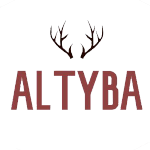In today’s fast-paced world, data is at the core of almost every decision, and the need for efficient, accessible, and open-source platforms has never been more critical. One of the emerging tools gaining attention is RDataO. This open-source platform is revolutionizing the data science landscape, offering a robust framework for data analysis, machine learning, and collaborative projects. In this article, we’ll explore RDataO’s many aspects, including its features, potential, and how it’s shaping the future of data-driven decision-making.
Introduction
Data science has transformed industries across the globe. Whether it’s helping businesses make smarter decisions, streamlining research, or enabling predictive analytics, data is invaluable. However, processing and analyzing vast amounts of data requires sophisticated tools. Enter RDataO, a powerful open-source platform designed to simplify complex data tasks. But what exactly is RDataO, and how is it different from other data science tools?
What is RDataO?
RDataO, short for “R Data Open,” is a comprehensive, open-source platform tailored to meet the growing demands of data scientists, analysts, and developers. Built on the foundations of the R programming language, RDataO extends its capabilities by offering tools that support data manipulation, machine learning, and statistical analysis. Its user-friendly interface, combined with a highly customizable backend, makes it an excellent choice for both beginners and experienced professionals in the field of data science.
Key Features of RDataO
The allure of RDataO lies in its unique features, which set it apart from other data science platforms. Here’s a closer look:
1. Open-Source Accessibility
RDataO is entirely open-source, meaning it’s free to use and can be modified to meet specific needs. This makes it a cost-effective solution for organizations looking for robust data science tools without the heavy licensing fees associated with proprietary platforms.
2. R-Based Framework
At its core, RDataO. is built on the R programming language, which is one of the most popular languages for statistical computing and graphics. This ensures that RDataa. users have access to a vast library of R packages and tools that enhance their data analysis capabilities.
3. Integrated Machine Learning Tools
RDataO’ supports machine learning workflows, allowing data scientists to build, train, and deploy models quickly. Its integration with popular machine learning libraries simplifies the process of creating predictive models, making it ideal for industries looking to leverage AI and machine learning in their operations.
4. Collaborative Workflows
One of the standout features of RDataO is its emphasis on collaboration. Data science teams can work together seamlessly, sharing code, data sets, and results in real time. This enhances productivity and fosters innovation within teams.
5. Scalability for Big Data
RDataO is designed to handle large data sets, making it a suitable choice for companies dealing with big data challenges. Its architecture allows for efficient data processing, ensuring that performance remains high even when working with complex and extensive data sets.
6. Visualization Capabilities
Data visualization is critical in conveying insights, and RDataO excels in this regard. It provides users with various visualization tools that allow for the creation of insightful and aesthetically pleasing charts, graphs, and dashboards.
Why RDataO is a Game-Changer in Data Science
The emergence of RDataO marks a significant shift in how organizations approach data science. Here’s why it’s considered a game-changer:
1. Democratizing Data Science
RDataO’s open-source nature makes data science more accessible to a broader audience. Small businesses, academic institutions, and independent developers can harness the power of RDataO without worrying about the high costs typically associated with premium data science platforms.
2. Supporting Interdisciplinary Collaboration
Data science is rarely confined to one field. RDataO fosters interdisciplinary collaboration by allowing experts from different fields to work together on data-driven projects. Whether it’s healthcare, finance, or academia, RDataO supports diverse use cases and fosters innovation across sectors.
3. Enabling Advanced Analytics and AI Integration
The platform’s integration with machine learning and artificial intelligence tools enables companies to go beyond traditional data analysis. By deploying advanced algorithms and models, organizations can gain deeper insights, automate processes, and predict trends more accurately.
4. Future-Proofing with Flexibility
As an open-source platform, RDataO evolves alongside the needs of its users. Its flexibility allows developers to contribute to its growth, ensuring that the platform remains at the cutting edge of data science innovations.
Getting Started with RDataO
If you’re new to RDataO and wondering how to get started, the process is quite straightforward. Here are the steps to begin using the platform:
1. Installation
RDataO can be easily installed on most operating systems, including Windows, macOS, and Linux. The official RDataO website provides detailed installation instructions, and the process is quick, especially for users familiar with R.
2. Exploring the Documentation
One of the strengths of RDataO is its extensive documentation. Whether you’re a novice or an expert, you’ll find a wealth of tutorials, guides, and community-driven content to help you get the most out of the platform.
3. Leverage R Packages
Since RDataO is built on the R programming language, users can take advantage of the massive library of R packages. These packages cover a wide range of topics, from data visualization to machine learning, and can significantly enhance your workflows.
4. Build and Test Models
Once you’re comfortable with the basics, you can begin building and testing machine learning models within RDataO. The platform supports popular libraries such as TensorFlow, allowing for the integration of deep learning techniques.
Advanced Data Science with RDataO
For seasoned data scientists, RDataO offers several advanced features that cater to more complex data science needs. Whether you’re handling massive data sets or building AI models, RDataO provides the tools and scalability to succeed.
1. Customization and Extensibility
One of the platform’s most appealing aspects is its flexibility. Developers can create custom scripts, algorithms, and extensions, tailoring RDataO to their specific project requirements.
2. Cloud and On-Premise Deployment Options
RDataO supports both cloud-based and on-premise deployments, giving organizations the flexibility to choose the infrastructure that best suits their security and performance needs.
3. Integrating with Other Tools
RDataO integrates seamlessly with other popular data science and analytics tools, such as Python, SQL, and Hadoop. This interoperability makes it a versatile choice for organizations with diverse tech stacks.
Challenges and Solutions in Using RDataO
While RDataO offers many advantages, like any platform, it comes with challenges. However, these challenges are solvable with the right strategies:
1. Learning Curve
RDataO’s power lies in its flexibility, but this can also make it overwhelming for beginners. However, with its extensive documentation and community support, the learning curve becomes more manageable over time.
2. Data Security Concerns
As with any open-source platform, data security is a concern. Organizations must implement robust security measures when using RDataO, particularly when dealing with sensitive data. Regular updates and security patches should also be a priority.
3. Performance on Large Data Sets
Although RDataO is designed for scalability, working with very large data sets can sometimes strain resources. This can be mitigated by optimizing workflows, using cloud resources, or scaling up infrastructure as needed.
RDataO’s Role in the Future of Data Science
Looking ahead, RDataO is poised to play a crucial role in the future of data science. As more organizations embrace open-source tools, RDataO’s community-driven approach will continue to evolve and adapt to emerging technologies, ensuring that it remains a key player in the data science ecosystem.
Conclusion
RDataO is more than just another data science tool—it’s a platform that empowers organizations and individuals to leverage data in innovative ways. By offering a flexible, open-source solution, RDataO makes data science accessible to everyone, regardless of their industry or experience level. Whether you’re just starting in data science or are a seasoned expert looking for a powerful, scalable tool, RDataO is worth exploring.
FAQs
- What makes RDataO different from other data science platforms?
- How can RDataO help small businesses with data analysis?
- Is RDataO suitable for machine learning projects?
- What are the advantages of using an open-source platform like RDataO?
- How secure is RDataO for sensitive data?
- Can RDataO handle large-scale data science projects?









